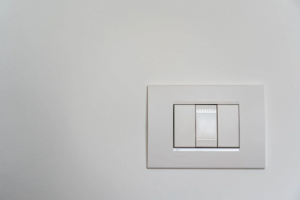In today’s world, where unpredictable weather and aging power grids can disrupt daily life, having a reliable home power generator is no longer a luxury—it’s a necessity. This blog post explores the essential features to look for in-home power generators, helping you make an informed decision to keep your household running smoothly during unexpected power outages. Also, it will give you peace of mind by ensuring your family’s safety and comfort.
Key Features to Consider
Power Output Matching Your Needs with the Generator’s Capacity
When selecting a home power generator, one of the most crucial factors is its power output. The generator’s capacity should match your household’s energy needs. Assess the appliances and systems you need to keep running during an outage, such as refrigerators, sump pumps, lights, and heating or cooling systems. Look for generators that offer a wattage capable of supporting these essentials without overloading. A generator with a higher power output ensures that your home remains functional and comfortable, even during extended power outages. Moreover, when choosing a generator, you can get all of the needed information online. That way, you can ensure the generator’s capacity aligns with your needs before making a purchase.
Fuel Type Understanding the Differences Between Gas, Propane, and Diesel
The type of fuel your generator uses can significantly impact its performance, cost, and maintenance. Gasoline generators are popular due to their availability and relatively low cost. However, they require frequent refueling and can be less efficient for long-term use. Propane generators offer cleaner burning and longer shelf life, making them an excellent option for extended outages. Diesel generators are known for their durability and efficiency but may be more expensive upfront. Understanding these differences can help you choose the right fuel type based on your needs and budget.
Run Time and Efficiency How Long Will Your Generator Last on a Single Tank?
Run time and efficiency are critical for ensuring your generator can sustain power for the duration of an outage. A generator’s run time is determined by its fuel capacity and consumption rate. Look for models that offer extended run times on a single tank to minimize the need for frequent refueling. Additionally, consider the generator’s efficiency in converting fuel into usable power. Higher efficiency translates to longer operation times and reduced fuel costs, making it a key consideration for continuous power supply.
Portability vs. Permanent Installation Considering Space and Usage Needs
Depending on your space and usage needs, you can choose between portable and permanently installed generators. Portable generators are versatile and can be moved to different locations as needed. They are ideal for temporary power needs and smaller homes. On the other hand, permanently installed generators, also known as standby generators, are connected directly to your home’s electrical system and automatically start during an outage. They are suitable for larger homes and provide a seamless transition to backup power. Evaluate your space and power requirements to determine which option best suits your needs.
Noise Level The Impact of Generator Noise on Daily Living
Noise level is an often overlooked feature when selecting a home power generator. Generators can produce significant noise, which may disturb your household and neighbors. Look for models with noise-reduction features or low-decibel ratings to ensure a quieter operation. Inverter generators are known for their quieter performance compared to traditional models. Considering noise levels is especially important if you live in a densely populated area or plan to place the generator close to living spaces.
Automatic vs. Manual Start Convenience and Peace of Mind During Power Outages
The method of starting the generator can affect its user-friendliness and reliability during emergencies. Automatic start generators detect power outages and activate without any manual intervention, providing immediate backup power. This feature is particularly beneficial for homes with critical systems that must remain operational. Manual start generators require you to start them physically, which can be inconvenient during severe weather conditions or at night. Assess the importance of convenience and peace of mind when choosing between automatic and manual start options.

Investing in a quality home power generator offers peace of mind and ensures your household remains functional during power outages. By considering essential features such as power output, fuel type, run time, portability, noise level, and start method, you can select the best generator to meet your needs. Reliable power backup is critical for maintaining comfort, safety, and convenience in your home.

Recent Comments